
The General Certificate of Secondary Education (GCSE) is an academic qualification in a range of subjects taken in England, Wales and Northern Ireland, having been introduced in September 1986 and its first exams taken in 1988. State schools in Scotland use the Scottish Qualifications Certificate instead. However, private schools in Scotland often choose to follow the English GCSE system.
The General Certificate of Education (GCE) is a subject-specific family of academic qualifications used in awarding bodies in England, Wales, Northern Ireland, Crown dependencies and a few Commonwealth countries. For some time, the Scottish education system has been different from those in the other countries of the United Kingdom.

AQA Education, trading as AQA, is an awarding body in England, Wales and Northern Ireland. It compiles specifications and holds examinations in various subjects at GCSE, AS and A Level and offers vocational qualifications. AQA is a registered charity and independent of the government. However, its qualifications and exam syllabi are regulated by the Government of the United Kingdom, which is the regulator for the public examinations system in England and Wales.
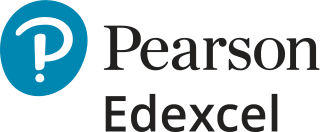
Edexcel is a British multinational education and examination body formed in 1996 and wholly owned by Pearson plc since 2005. It is the only privately owned examination board in the United Kingdom. Its name is a portmanteau term combining the words education and excellence.
An examination board is an organization that sets examinations, is responsible for marking them, and distributes the results. Some are run by governmental entities; some are run as not-for-profit organizations.
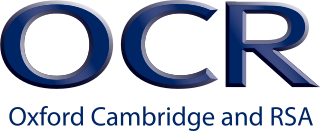
Oxford, Cambridge and RSA Examinations (OCR) is an examination board that sets examinations and awards qualifications. It is one of England, Wales and Northern Ireland's five main examination boards.

The International General Certificate of Secondary Education (IGCSE) is an English language based secondary qualification similar to the GCSE and is recognised in the United Kingdom as being equivalent to the GCSE for the purposes of recognising prior attainment. It was developed by Cambridge Assessment International Education. The examination boards Edexcel, Learning Resource Network (LRN), and Oxford AQA also offer their own versions of International GCSEs. Students normally begin studying the syllabus at the beginning of Year 10 and take the test at the end of Year 11. However, in some international schools, students can begin studying the syllabus at the beginning of Year 9 and take the test at the end of Year 10.
The Certificate of Secondary Education (CSE) was a subject-specific qualification family awarded in both academic and vocational fields in England, Wales and Northern Ireland. CSE examinations were held in the years 1965 to 1987. This qualification should not be confused with the Indian Certificate of Secondary Education which is a school-leaving qualification in India. Also, in some African and former British colonial countries there is a qualification named the Certificate of Secondary Education based on the original and former British variant. Also, the CSE should not be confused with the African qualification CSEE.
NEAB was an examination board serving England, Wales and Northern Ireland from 1992 until 2000 when it merged with AEB/SEG to form AQA.

The A-level is a subject-based qualification conferred as part of the General Certificate of Education, as well as a school leaving qualification offered by the educational bodies in the United Kingdom and the educational authorities of British Crown dependencies to students completing secondary or pre-university education. They were introduced in England and Wales in 1951 to replace the Higher School Certificate. The A-level permits students to have potential access to a chosen university they applied to with UCAS points. They could be accepted into it should they meet the requirements of the university.

The Associated Examining Board (AEB) was an examination board serving England, Wales and Northern Ireland from 1953 until 2000 when it merged with NEAB to form AQA.
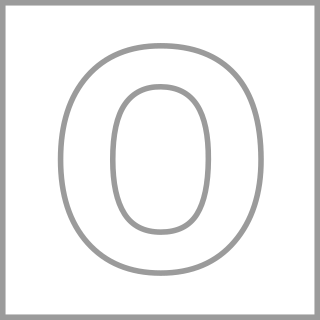
The O-Level is a subject-based qualification conferred as part of the General Certificate of Education. It began in the United Kingdom and has been adopted, often with modifications, in several other countries.

The Office of Qualifications and Examinations Regulation (Ofqual) is a non-ministerial government department that regulates qualifications, exams and tests in England. Colloquially and publicly, Ofqual is often referred to as the exam "watchdog".
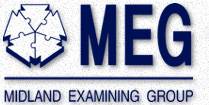
The Midland Examining Group (MEG) was an examination board, operating in England, Wales and Northern Ireland. It offered a range of GCSE and Certificate of Achievement qualifications. It became part of OCR in 1998.
Examination boards in the United Kingdom are the examination boards responsible for setting and awarding secondary education level qualifications, such as GCSEs, Standard Grades, A Levels, Highers and vocational qualifications, to students in the United Kingdom.
The A level, is a main school leaving qualification of the General Certificate of Education in England, Wales, Northern Ireland, the Channel Islands and the Isle of Man. It is available as an alternative qualification in other countries, where it is similarly known as an A-Level.
The Joint Matriculation Board of the Universities of Manchester, Liverpool, Leeds, Sheffield and Birmingham (JMB), sometimes referred to as the Northern Universities Joint Matriculation Board, was an examination board, operating in England, Wales and Northern Ireland between 1903 and 1992. It became part of NEAB, which itself is now part of AQA.

The General Certificate of Education (GCE) Ordinary Level, also called the O-level or O level, was a subject-based academic qualification. Introduced in 1951 as a replacement for the 16+ School Certificate (SC), the O-level would act as a pathway to the new, more in-depth and academically rigorous A-level, in England, Wales and Northern Ireland. Later, the complementary and more vocational Certificate of Secondary Education (CSE) was added to broaden the subjects available and offer qualifications in non-academic subjects.
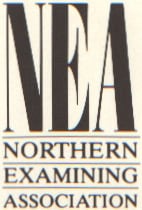
The Northern Examining Association (NEA) was an examination board offering

Kathleen Tattersall was a British educationalist, specialising in examination administration. She was the leader of five examination boards in the United Kingdom before becoming the first head of exams regulator Ofqual.











